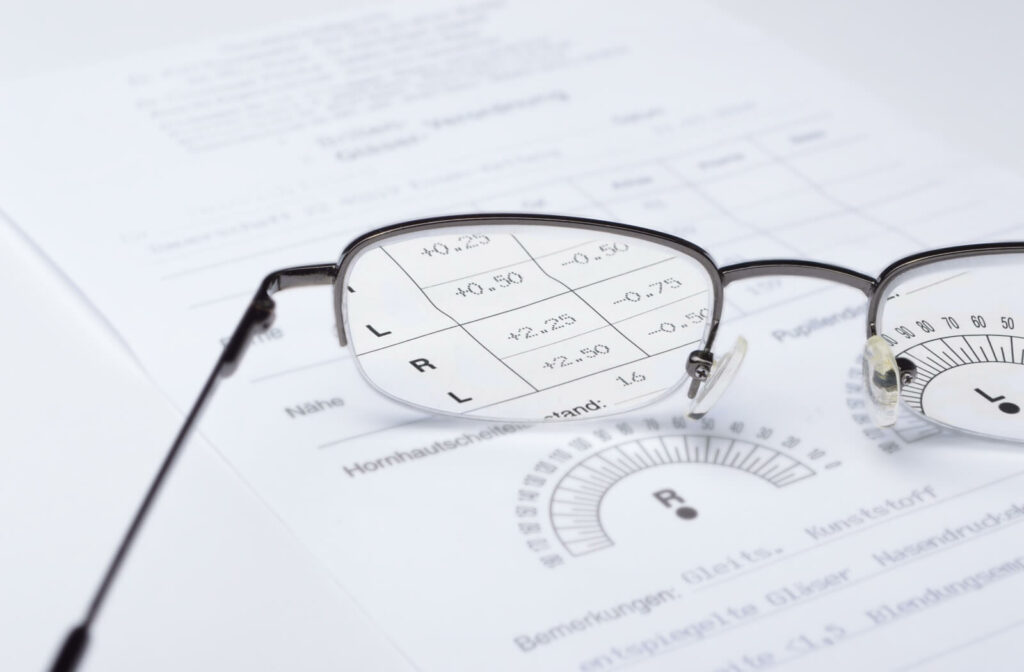If you’re someone who wears glasses, you understand how important it is to have an up-to-date prescription. Not only does an up-to-date prescription make sure that you have the clearest vision possible, but it also takes into account any changes in your eyes over time.
You may have heard that your prescription glasses are only valid for one year. While most states have eyeglass prescriptions that last for two years, it’s always a good idea to check your prescription expiration date just to be sure. In Texas, your glasses prescription typically lasts for two years from the date of your eye exam.
Even if your eyesight hasn’t changed much in that period, your prescription can still expire. It’s recommended to get eye exams at least once a year to make sure your prescription is still right for you.
Standard Prescription Expiration
Firstly, let’s get one thing straight–there is no one-size-fits-all when it comes to prescription duration. The length of your glasses prescription can depend on several factors, including your eye health, age, medical history, and several other factors.
That being said, most prescriptions issued in the United States are considered valid for a minimum of one to two years. Texas prescriptions are good for two years.
The Importance of Regular Eye Exams
Even if your glasses prescription hasn’t passed its expiration date, it’s important to get regular eye exams with your optometrist. These exams allow your optometrist to monitor any changes in your eyes that could require an adjustment to your prescription.
Children & Older Adults May Require More
Children and older adults might need to have their eyes checked more often than other age groups.
For children, eye exams are important because their eyes are still developing. They should have an eye exam between 6-12 months, 2-3 years, 4-5 years, and then annually from age 6 and above. This is because children’s eye exams can help identify any vision impairments early so they can be treated effectively.
On the other hand, older adults’ vision tends to change more frequently, therefore, the American Optometric Association recommends annual eye examinations for everyone over age 60. Vision changes can sometimes indicate other health issues, so it’s crucial to keep up with those appointments.
Certain Medical Conditions Can Affect Prescription Validity
If you have certain medical conditions, the validity of your prescription may be shorter than the standard one to two years.
For example, if you have diabetes, hypertension, or other chronic conditions that can affect your eyesight, your optometrist may recommend more frequent eye exams and prescription updates.
Additionally, if you’ve had eye surgery or other procedures, your optometrist may recommend more frequent exams as well.

Glasses Prescription vs. Contacts Prescription
Another factor to keep in mind is whether your prescription is for contact lenses or regular eyeglasses. Contact lens prescriptions generally have a shorter lifespan than glasses prescriptions, as they sit directly on the eye and need to be evaluated more frequently for changes in fit or health risks.
There are potential risks with expired contact lens prescriptions. These could include allergic reactions, eye infections, as well as corneal scratches or ulcers. Therefore, it is crucial to pay attention to the expiration dates of prescriptions.
Can a Contact Lens Prescription Get Prescription Glasses?
Eyeglass prescriptions and contact lens prescriptions aren’t interchangeable. The reason is pretty simple–contact lenses need to conform to the curvature of your eye, while glasses are adjusted for individual features like nose bridge and ear height.
So, when it comes to contacts, it’s a more complex fitting process. They require specific measurements to fit properly and correct your vision. That’s why your glasses prescription won’t work for contacts.
Prescription Expiration & Insurance Coverage
When it comes to insurance coverage for new glasses, a lot depends on whether your prescription is still valid. If it’s expired, you might have to pay the full cost of your new glasses yourself.
Not all insurance plans are the same. Some might have different rules and timelines about when a prescription is considered valid. So, it’s a good idea to check in with your provider to make sure you know exactly what’s covered.
The Lifespan of Your Glasses Prescription
The length of your glasses prescription validity will depend on several factors, such as your age, overall eye health, and whether it’s for contacts or glasses. Generally, your glasses prescription is valid for one to two years, depending on the state you live in.
The key takeaway is to prioritize regular eye exams and follow your optometrist’s recommended schedule for updates, as this will help maintain clear vision, identify underlying eye issues, and ultimately ensure optimal eye health. At The Vision Place, our mission is making sure your vision is at its best. Take a moment to schedule an appointment with us today. We’re eager to assist with all your vision requirements.


